10 Movies That Completely Screw Up Historical Events
These movies are wildly historically inaccurate.
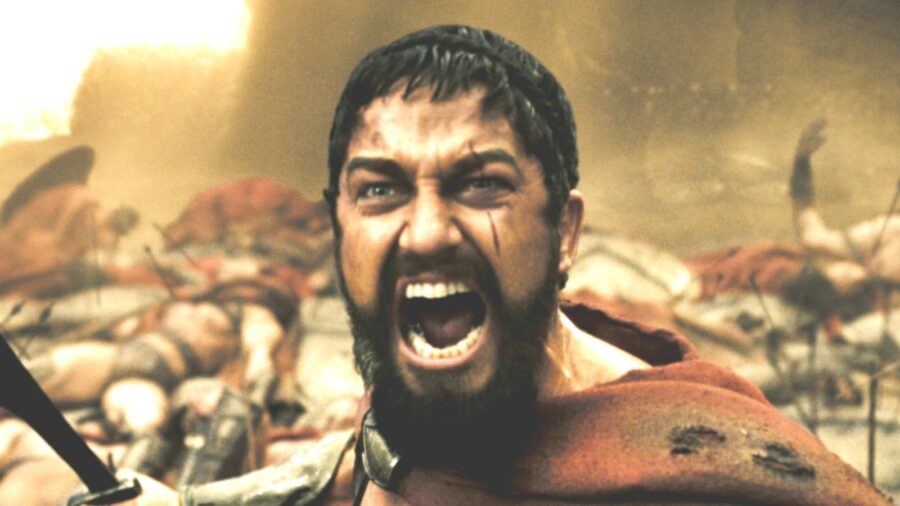
We should not necessarily expect Hollywood to provide a comprehensive historical education for viewers, but there should be some kind of limit. We can deal with Marvel Studios not getting the details of, say, Kang the Conqueror‘s life story correct (though that’s a pretty difficult task for anyone, to be fair), but when it comes to real life, we would hope for better. With that said, here are ten of the most historically inaccurate films ever produced.
10. Alexander (2004)
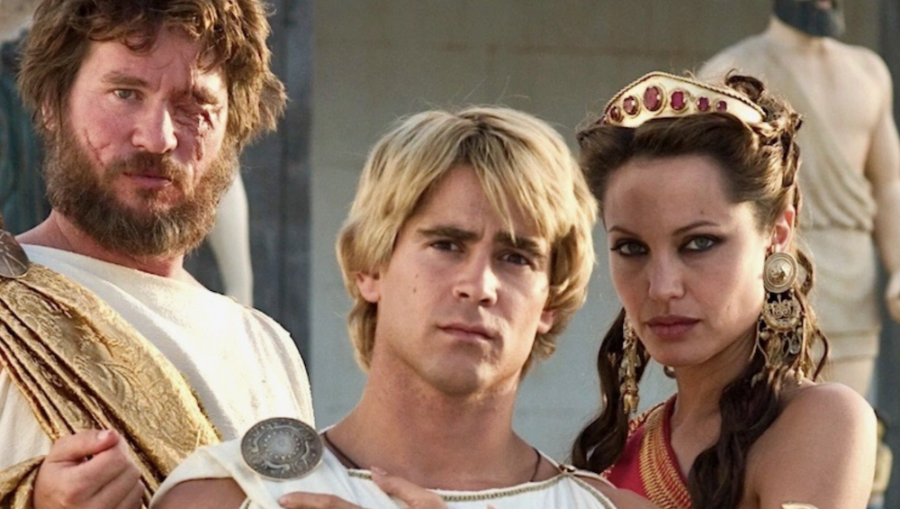
Oliver Stone’s 2004 film Alexander set out to do what many have: tell the tale of Alexander the Great, the 4th-Century BCE Macedonian King who set out to unite the ancient world under his rule and nearly succeeded before dying in controversial circumstances at the age of 32. The film was critically drubbed, tanked at the box office, and basically destroyed Colin Farrell’s career as a leading man before he returned, phoenix-like, in the form of a charming character actor.
Aside from Stone’s typically overheated direction, the biggest flaw of the film is Alexander’s depiction of a homoerotic attraction between the king and his friend Hephaestion (Jared Leto) as something of a forbidden, taboo love. However, social concepts of homosexuality in the 4th-Century Mediterranean basically have no relation to that of America in the 21st century, which makes the portrayal of the character as having to do more with Oliver Stone’s own beliefs than it does the historical figure. You can be as accurate to the details of the Battle of Gaugamela as you want, but it doesn’t help if you can’t even get the basic concepts of the culture correct.
9. The Last Samurai (2003)
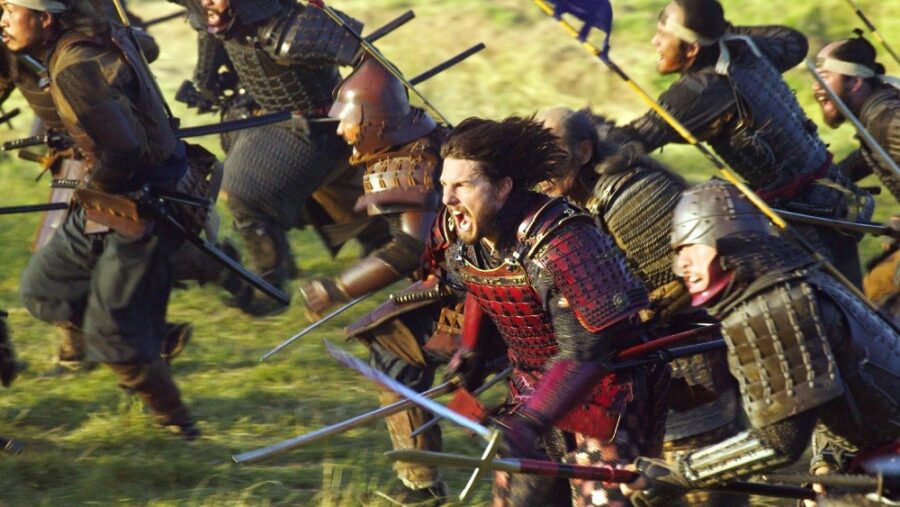
We’ll get this out of the way first: the historical inaccuracy of Tom Cruise’s period action movie The Last Samurai is not that a White American soldier joined a group of 19th-Century Japanese rebels and fought alongside them. Cruise’s Captain Algren is a wholly fictional character (though inspired by the French soldier Jules Brunet), so he cannot really be described as inaccurate to anything.
However, the fictional rebellion led by Lord Katsumoto (Ken Watanabe), the actual last samurai of the title, is inaccurately represented as being a noble cause against treacherous, greedy bureaucrats seeking to undermine the Japanese Emperor. In fact, the various rebellions against Imperial authority that inspired the film had far more to do with the ruling samurai caste (which previously had essentially held supreme political and military power) being threatened by loss of status. You can dress it up as a virtuous crusade, but it was really about the richest people in the country, who literally had the authority to kill peasants at will without consequences, not wanting to give up any power.
8. Amadeus (1984)
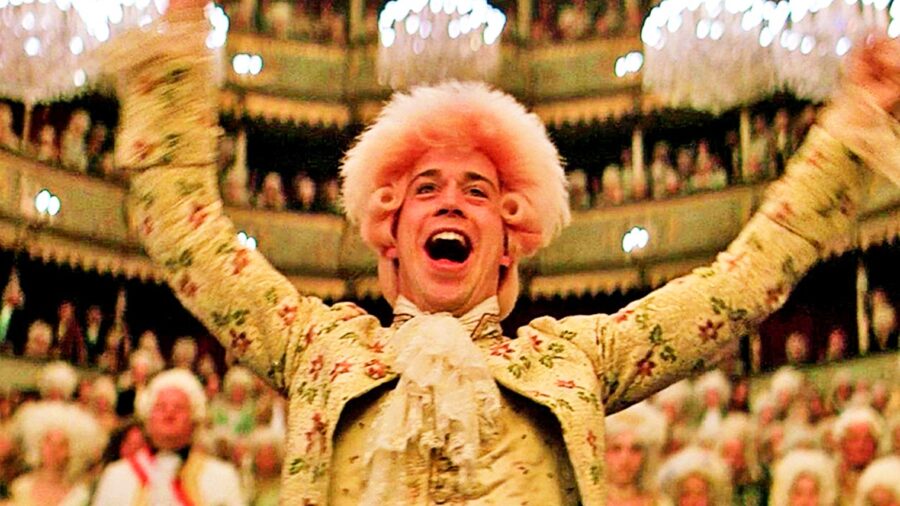
Miloš Forman’s film adaptation of Peter Shaffer’s acclaimed play Amadeus depicted Wolfgang Amadeus Mozart (Tom Hulce) as a carefree, impetuous genius whose God-given talent both enthralls and enrages his rival Antonio Salieri (F. Murray Abraham), who conspires to bring about his early death. While Mozart did indeed die in uncertain circumstances at the age of 35, the much-mythologized idea that Salieri had in some way brought about his death has been soundly refuted by every imaginable historical source.
Shaffer was perfectly aware of this, choosing to portray the two musicians as “fantasia” of envy and accomplishment rather than the reality that the two men while the two men were competitors in the Austrian court, they were hardly deadly enemies. In fact, the two were occasional compositional collaborators, Salieri enthusiastically and publicly supported Mozart’s career, and actually later tutored his son in music. Not to mention, far from being a celibate religious fanatic (as he is portrayed), Salieri was married, had eight children, and at least one known mistress.
7. The Patriot (2000)
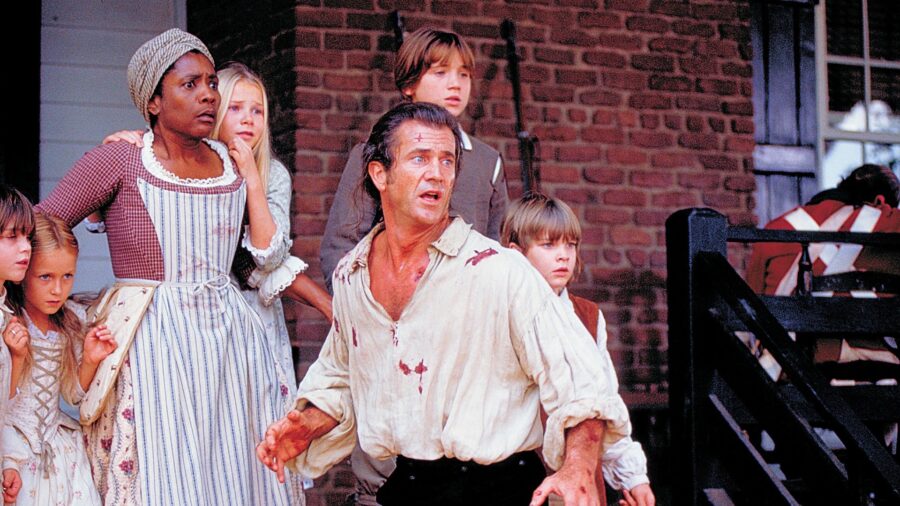
Much like Tom Cruise’s character in The Last Samurai, Mel Gibson’s protagonist Benjamin Martin in The Patriot is a fictional creation, albeit one inspired by several different Revolutionary War figures. The movie goes out of the way to note that he does not own slaves (which, fair enough, some rich landowners did not), and feels really bad about killing people in the French and Indian War.
One of the crucial events of the film occurs when nefarious British Colonel William Tavington (Jason Isaacs) barricades a church full of civilians and burns it down, an atrocity in any war. It’s a good symbol of the cruelty and barbarianism of the British, except that nothing even close to it happened during the Revolutionary War. It was purely made up to make the bad guys look like psychopaths, even though historical records indicate the British soldiers were noted for their courtesy to colonist civilians.
6. Gladiator (2000)
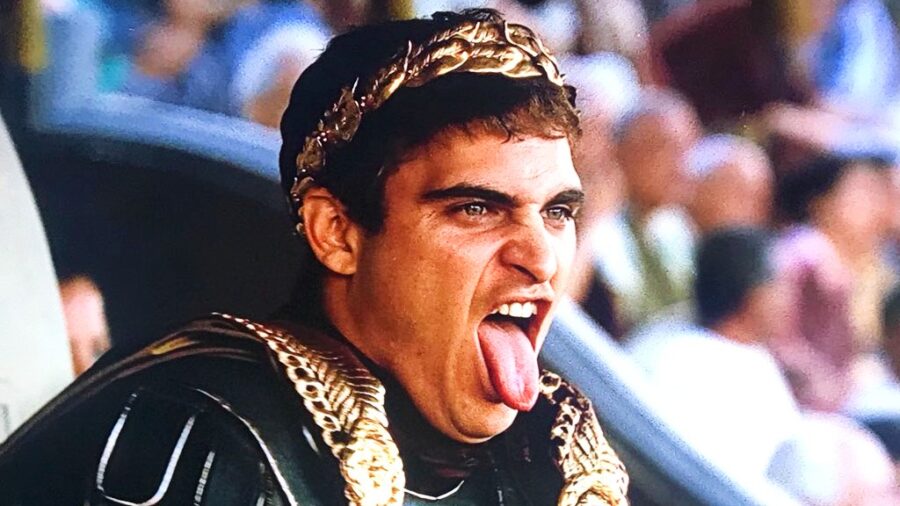
Filmmaker Ridley Scott set out to make Gladiator the most accurate movie about ancient Rome that had ever been made, and it pains us to say, he biffed it. Hard. We’ll just list some factual inaccuracies: the Roman Emperor Marcus Aurelius (Richard Harris) was not murdered by his son Commodus (Joaquin Phoenix), he died of a plague. No records indicate that he planned to restore the Roman Republic. He did not outlaw gladiatorial games in Rome. The tactics of the Roman soldiers depicted fighting Germanic tribes are laughably wrong, as are the armor and weaponry they’re using.
Most particularly, Commodus is inaccurately depicted as a sniveling psychopath whose brief rule is chaotic and violent, and whose death brings peace to Rome. In fact, Commodus was a complex figure who had tendencies to megalomania and indulgence (kind of understandable, considering he was the ruler of a vast empire), but also heavily reduced Rome’s military campaigns, and whose death triggered a violent civil war, not the sadistic monster of the movie.
5. Pocahontas (1995)

The single biggest historical inaccuracy about Disney’s animated feature Pocahontas? The Powhatan woman whose life is fancifully depicted in the movie is not recorded as having sung any songs about any colors of the wind, at least not by any reputable historians.
But seriously, even for a children’s movie, Pocahontas is egregiously inaccurate. Pocahontas was a nickname; the woman’s given name was Matoaka. She was around 10 years old when English colonists arrived at the area that would become Jamestown, not a young adult.
There is no record of her having a romantic relationship with John Smith, who, in contrast to his depiction as a friendly heroic type, is described in contemporary records as a harsh authoritarian (i.e., a jerk). The legend of Pocahontas rescuing Smith from execution is historically dubious at best, and likely part of the colonist’s own self-aggrandizing myth-making.
We could go on and on about this one, but we’ll move on.
4. Hamilton (2020)
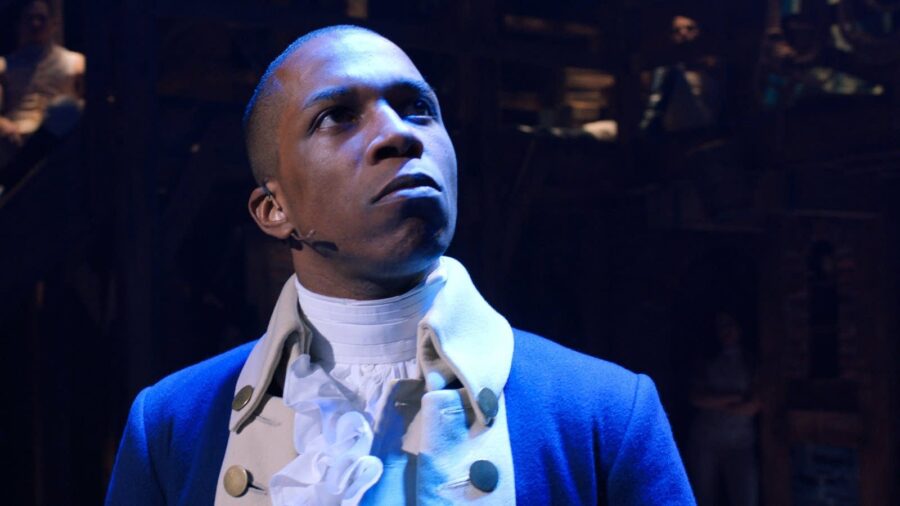
Lin-Manuel Miranda’s stage musical Hamilton was a cultural phenomenon the likes of which are rarely seen. The production (and the 2020 film version released on Disney+) saw Founding Fathers Alexander Hamilton (Miranda himself) and Aaron Burr (Leslie Odom Jr.) singing and rapping their way through their historically fractious relationship, with other figures of the American Revolution played by talents like Daveed Diggs and Anthony Ramos.
Hamilton heavily fictionalizes any number of meetings, conversations, and relationships between characters, but arguably its greatest inaccuracy is in the character of Aaron Burr. In the musical, Burr is depicted as a pensive figure whose indecisiveness and lack of strong stance hold him back from the stature of his peers like Thomas Jefferson and John Adams. Moreover, the story shows Burr as being deeply remorseful for having killed Hamilton in a duel.
However, in real life, Aaron Burr’s place as a Founding Father is debated by historians; he produced no significant writings (such as the Federalist Papers or the Declaration of Independence) and had a habit of alienating others with womanizing and hypocrisy (for example, calling for an end to slavery while still owning slaves). His most notable accomplishment was to found the Bank of Manhattan (which eventually became the modern Chase Bank) as a political tool, pretending that it was to finance a water company.
In doing so, he actually delayed the construction of a real water company and arguably exacerbated a deadly malaria epidemic at the time. Moreover, not only was Burr noted for not showing remorse over killing Hamilton, but actually made gallows humor jokes about it at parties for years afterward.
JFK (1991)
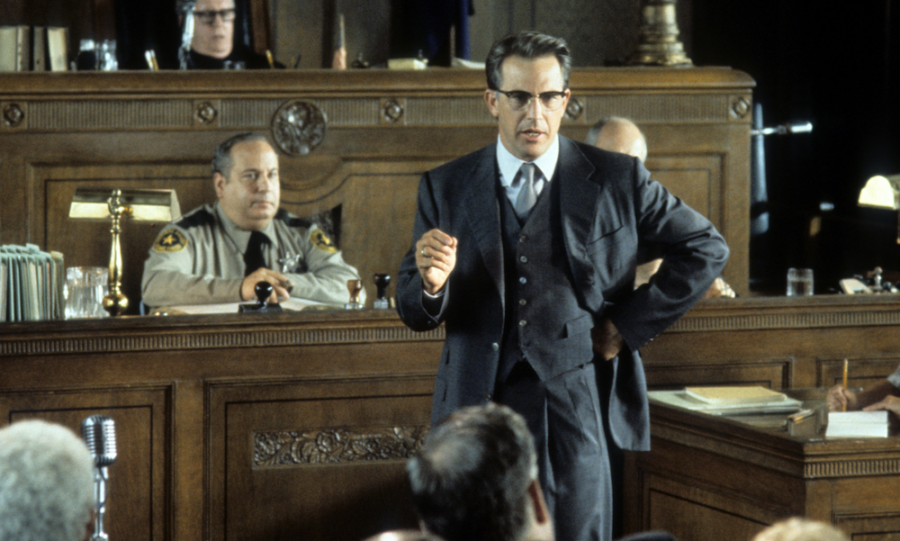
As we have noted, the Kevin Costner conspiracy thriller JFK was enormously successful, raking in over $200 million at the box office and being nominated for eight Academy Awards for promoting discredited theories about the assassination of John F. Kennedy, plus Tommy Lee Jones’ weird wig.
Getting into exactly what is inaccurate about JFK would take a full-length essay in itself (and often has), but to sum it up, the film’s central tenet that Kennedy’s assassination was a conspiracy by the CIA, U.S. military, the Mafia, the FBI, a cabal of bizarre gay criminals, Cuban refugees, and Lyndon B. Johnson is based on New Orleans District Attorney Jim Garrison’s assertion that a hypnotized man dosed with sodium pentothal was the key to it all.
300 (2006)

Director Zack Snyder has alternately said his epic Greek action movie 300 is “90 percent accurate” and that it’s “an opera, not a documentary,” which kind of seems like he wants to have it both ways. 300 tells the tale of Spartan warriors led by King Leonidas (Gerard Butler), who all by themselves, held off the vast, invading Persian Empire long enough for the rest of Greece to unite.
Except that by the time of the Battle of Thermopylae, many Greek cities had already formed a coalition against the Persian Empire and, in fact, the 300 Spartans were actually part of a several thousand-strong multi-city army. Far from being a noble Pyrrhic victory, the battle was a crushing defeat to the Greek forces by the Persians, who, it should be noted, did not have actual troll monsters in their army.
Braveheart (1995)
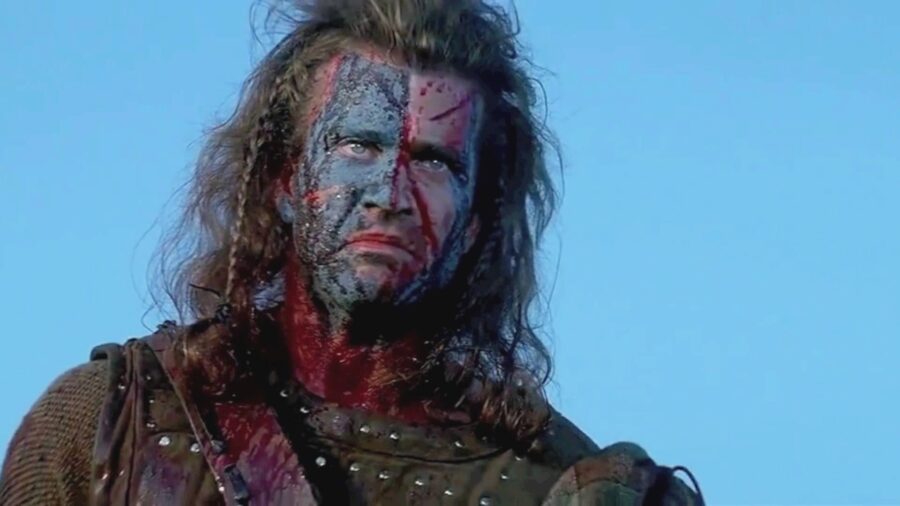
We’ll be direct here: Mel Gibson’s epic historical war film Braveheart is one of the most inaccurate movies ever made, on basically every level possible. While there was indeed a man named William Wallace who was involved in the First War of Scottish Independence in the 14th Century, pretty much everything else is made up. Far from being a noble but educated peasant who rose to heroism after terrible tragedy, the real William Wallace was a low-ranking nobleman who conscripted soldiers and hanged men who wouldn’t fight for him.
Additionally, the portrayal of Scotland as a land of woad-painted men wearing kilts is simultaneously far too late in history for the woad (which hadn’t been commonly worn in a millennium) and too early for kilts (which weren’t worn for hundreds of years more, plus they’re wearing them wrong). Then there are all the inaccuracies in dates, locations, and the evil English King Edward I (Patrick McGoohan) invoking Jus primae noctis for his cruel noblemen, which no reputable source has ever been able to back up even a little bit. Just plain wrong.











